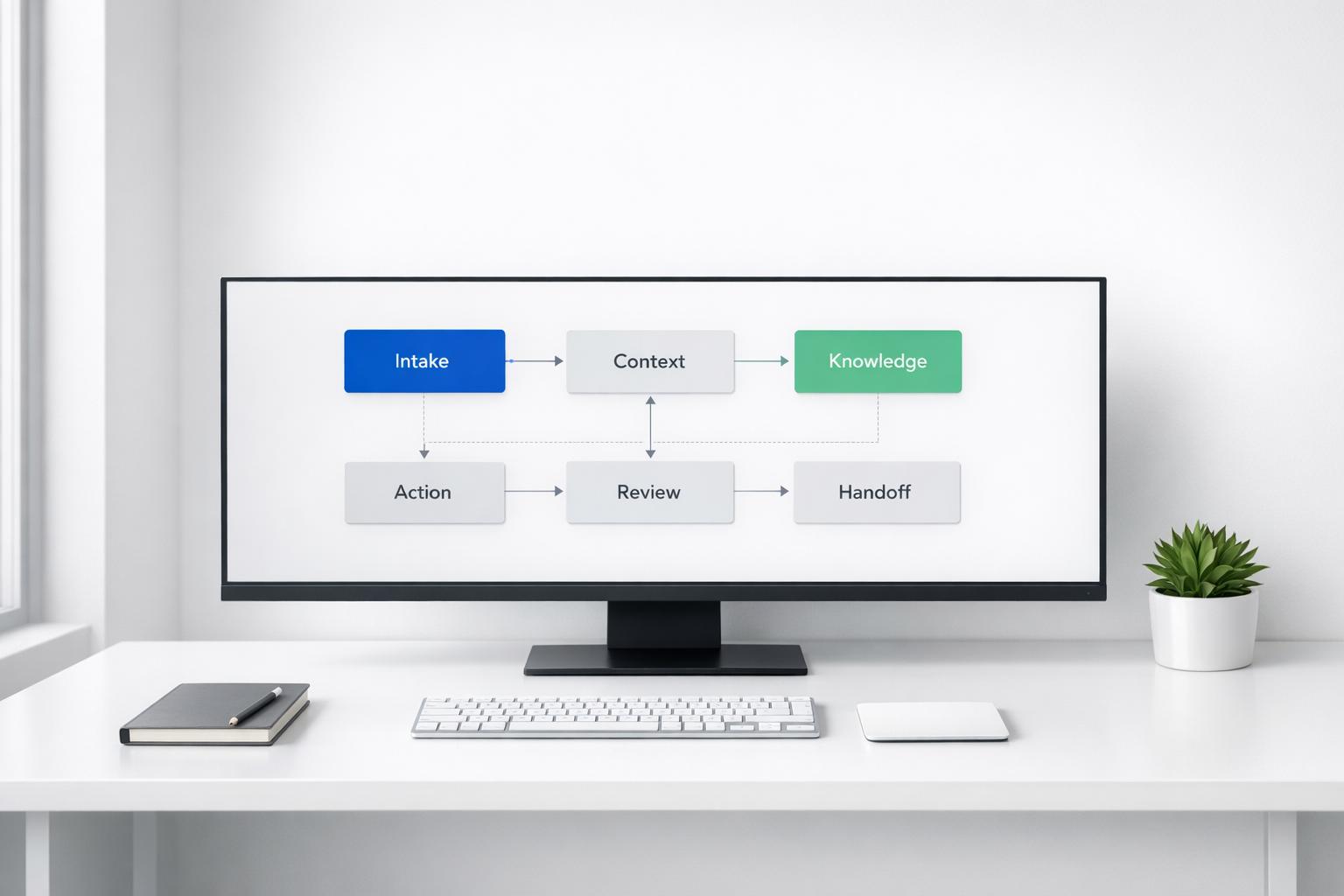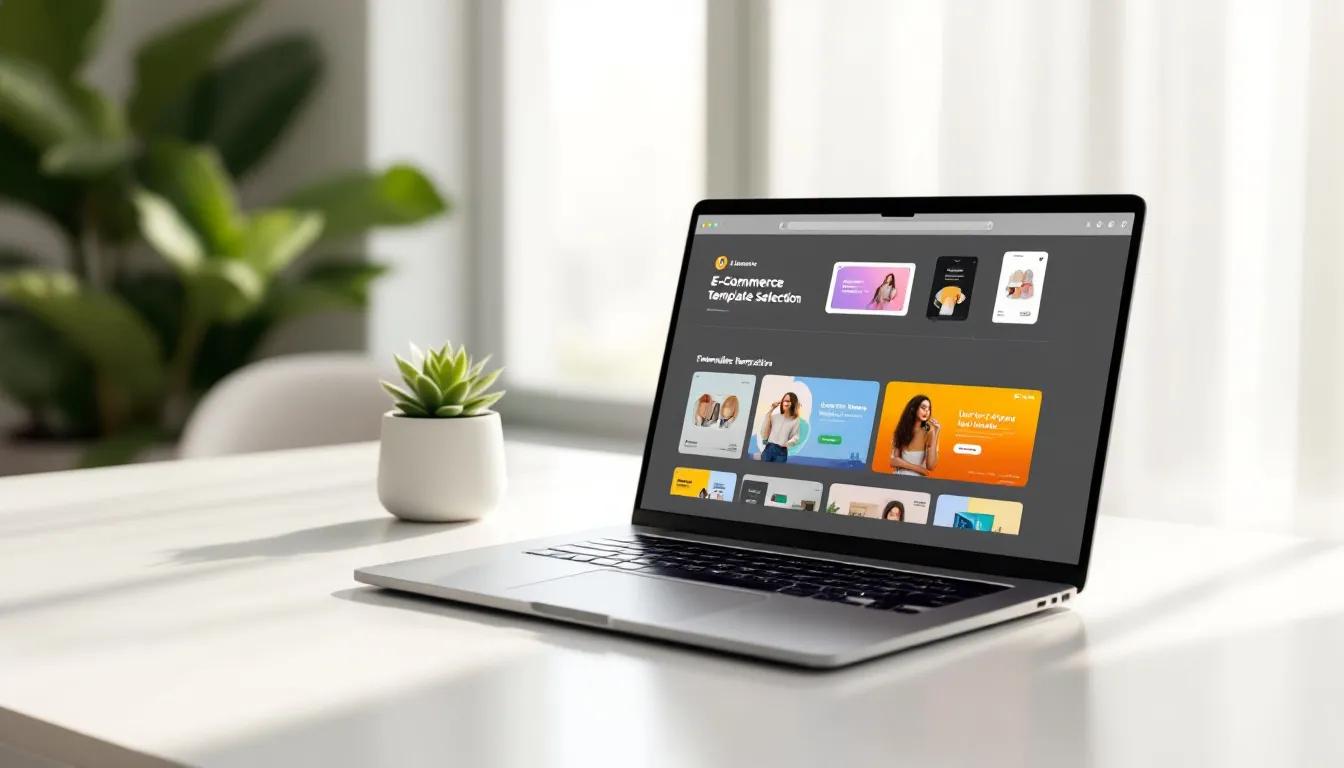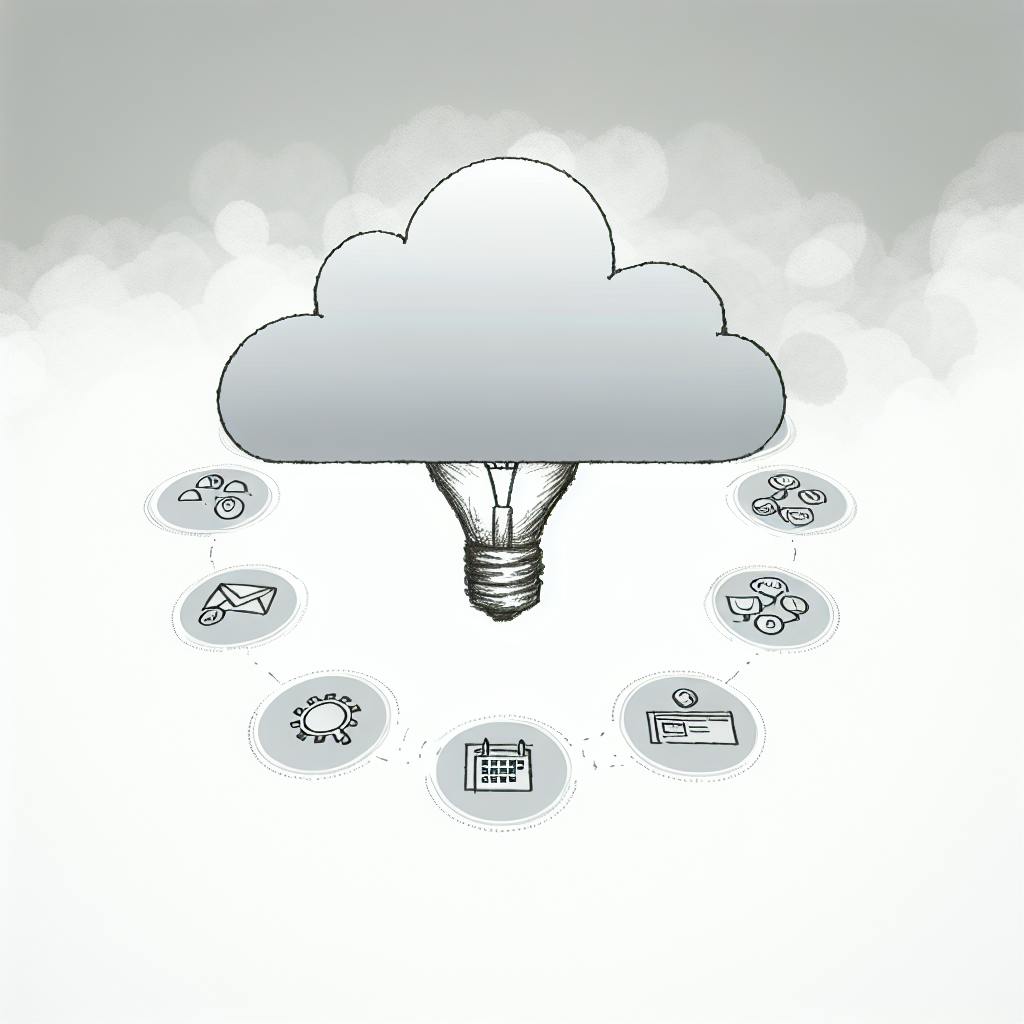Protecting sensitive customer data during live chat sessions is crucial. Here are the top 10 best practices to ensure a secure live chat experience:
- Use Strong Data Encryption: Encrypt data during transmission and storage using protocols like SSL/TLS, AES, and PGP to prevent unauthorized access.
- Enable Multi-Factor Authentication (MFA): Require additional verification steps beyond just a password, such as a one-time code or biometric scan, to reduce the risk of unauthorized logins.
- Conduct Regular Security Checks: Proactively identify and address potential security risks and weaknesses through regular security audits and vulnerability assessments.
- Restrict Access with Role-Based Permissions: Limit access to customer data and live chat systems to authorized personnel only, based on their roles and responsibilities.
- Follow Data Privacy Laws and Regulations: Comply with regulations like GDPR, HIPAA, and CCPA to protect customer data and avoid legal issues and fines.
- Secure Data Storage and Backup: Store and back up sensitive information securely using encryption and access controls to prevent data breaches or loss.
- Implement Secure File Sharing and Transfer: Encrypt files and require additional verification steps for secure file sharing during live chat sessions.
- Train Employees on Security Best Practices: Educate employees on data privacy, handling sensitive information, and the consequences of security breaches.
- Monitor and Log Live Chat Sessions: Keep track of conversations to identify potential security issues and comply with data privacy regulations.
- Develop and Test an Incident Response Plan: Have a plan in place to effectively respond to security incidents, including detecting, containing, and recovering from breaches.
By implementing these best practices, you can protect your customers' sensitive information, maintain trust, avoid financial losses, and protect your reputation.
Related video from YouTube
1. Use Strong Data Encryption
Encrypting data is key to protecting sensitive customer information like credit card numbers and login details during live chat sessions. This prevents unauthorized access.
Encryption Methods
Live chat platforms can use these encryption protocols:
- SSL/TLS (Secure Sockets Layer/Transport Layer Security)
- AES (Advanced Encryption Standard)
- PGP (Pretty Good Privacy)
These encrypt data during transmission and storage, making it unreadable to anyone without access.
Privacy Compliance
Encryption also helps live chat platforms follow data privacy laws like:
- GDPR (General Data Protection Regulation)
- HIPAA (Health Insurance Portability and Accountability Act)
- CCPA (California Consumer Privacy Act)
By encrypting customer data, platforms show their commitment to privacy and security, building customer trust.
Access Controls
To further boost security, live chat platforms can use:
- Role-based access control
- Multi-factor authentication
- Secure key exchange and management
This ensures only authorized staff can access encrypted data, reducing the risk of data breaches.
2. Enable Multi-Factor Authentication (MFA)
Multi-factor authentication (MFA) adds an extra security layer to your live chat platform. It requires users to provide more than just a password to gain access, reducing the risk of unauthorized logins and credential-based attacks.
Authentication Methods
MFA typically combines two or more of these factors:
- Knowledge Factor: Something only the user knows, like a password or PIN.
- Possession Factor: Something the user has, such as a mobile device or security token.
- Inherence Factor: Something unique to the user, like a fingerprint or facial recognition.
When logging in, users first enter their username and password. They are then prompted for a second factor, such as a one-time code sent to their mobile device or a biometric scan. Only after providing all required factors are they granted access.
Compliance Standards
Implementing MFA helps live chat platforms comply with regulations like GDPR, HIPAA, and PCI-DSS, which mandate MFA as part of a comprehensive security strategy.
| Benefit | Description |
|---|---|
| Stronger Security | MFA significantly reduces the risk of unauthorized access and credential-based attacks. |
| Regulatory Compliance | Meets requirements for data protection and security standards like GDPR, HIPAA, and PCI-DSS. |
| User Confidence | Demonstrates a commitment to safeguarding sensitive information, building user trust. |
3. Conduct Regular Security Checks
Regularly checking your live chat system for security risks and weaknesses is crucial. This proactive approach helps you stay ahead of potential threats and safeguard customer data.
Compliance Requirements
Conducting regular security checks is necessary to comply with data protection regulations like GDPR, HIPAA, and PCI-DSS. These regulations require businesses to implement robust security measures to protect sensitive customer information.
Access Control Measures
Security checks help identify gaps in access control measures, allowing you to implement:
- Role-based permissions
- Access controls
- Authentication methods
This restricts unauthorized access to customer data.
By conducting regular security checks, you can:
| Benefit | Description |
|---|---|
| Identify Risks | Uncover potential security risks and weaknesses |
| Protect Data | Implement strong security measures to protect customer data |
| Ensure Compliance | Meet data protection regulation requirements |
| Enhance Security | Improve the overall security of your live chat system |
4. Restrict Access with Role-Based Permissions
Limiting access to customer data and live chat systems is crucial. Only authorized personnel should have access, reducing the risk of data breaches and cyber attacks.
Access Control Measures
- Role-based permissions: Assign specific roles (agent, admin, owner) with set permissions and access levels.
- Authentication methods: Use secure methods like multi-factor authentication to verify identities.
- Access restrictions: Limit access to sensitive areas like customer data and chat transcripts.
| Benefit | Description |
|---|---|
| Prevent Unauthorized Access | Only authorized personnel can access customer data and systems |
| Reduce Data Breach Risk | Restricting access minimizes the risk of data breaches and cyber attacks |
| Enhance Security | Implementing robust access controls strengthens overall system security |
Example
In Zendesk Chat, you can create custom roles with specific permissions, such as:
- Viewing visitor lists
- Editing visitor information
- Managing visitor bans
Agents and admins only have access needed for their roles, reducing unauthorized access risk.
5. Follow Data Privacy Laws and Regulations
Live chat systems must comply with data privacy laws and regulations. These rules dictate how customer data is collected, stored, and processed. Failure to comply can lead to legal issues and fines.
Privacy Laws and Standards
Live chat platforms must follow regulations like:
- GDPR (General Data Protection Regulation): Rules for handling personal data in the European Union.
- HIPAA (Health Insurance Portability and Accountability Act): Standards for protecting health information in the United States.
- CCPA (California Consumer Privacy Act): Privacy rights for California residents.
Complying with these laws is mandatory, not optional.
Access Controls
To meet privacy standards, live chat systems should have:
| Access Control | Description |
|---|---|
| Role-Based Permissions | Limit access based on user roles (agent, admin, etc.) |
| Authentication Methods | Require additional verification like multi-factor authentication |
| Access Restrictions | Only allow authorized personnel to view sensitive data |
These measures prevent unauthorized access to customer data, reducing the risk of data breaches.
sbb-itb-d1a6c90
6. Secure Data Storage and Backup
Keeping customer data safe is crucial. Live chat platforms must store and back up sensitive information securely to prevent unauthorized access, data breaches, or loss.
Encryption Methods
To protect data, live chat platforms should use:
- SSL/TLS encryption for data transmission
- AES-256 encryption for stored data
This makes the data unreadable to anyone without proper access.
Compliance Requirements
Live chat platforms must follow data protection laws like:
- GDPR (General Data Protection Regulation) in the European Union
- HIPAA (Health Insurance Portability and Accountability Act) in the United States
- CCPA (California Consumer Privacy Act)
These laws dictate how customer data is stored, processed, and protected.
Access Control Measures
To prevent unauthorized access, live chat platforms should implement:
| Access Control | Description |
|---|---|
| Role-Based Permissions | Only allow authorized personnel to access data based on their role (agent, admin, etc.) |
| Multi-Factor Authentication | Require additional verification steps beyond just a password |
| Access Restrictions | Limit access to sensitive data like encryption keys and passwords |
7. Implement Secure File Sharing and Transfer
When agents share files with customers during live chat sessions, it's crucial to ensure the files are encrypted and protected from unauthorized access.
Encryption Protocols
To secure files during transfer, live chat platforms should use encryption protocols like:
- SSL/TLS
- AES-256
These protocols make files unreadable to anyone without proper access.
Authentication Methods
To prevent unauthorized access, live chat platforms should require additional verification steps beyond just a password. This can be achieved through Multi-Factor Authentication (MFA), ensuring only authorized personnel can access and share files.
Compliance Standards
Live chat platforms must follow data protection laws like:
- GDPR (General Data Protection Regulation)
- HIPAA (Health Insurance Portability and Accountability Act)
- CCPA (California Consumer Privacy Act)
These laws dictate how customer data is stored, processed, and protected during file sharing and transfer.
| Encryption Protocol | Description |
|---|---|
| SSL/TLS | Secures data transmission over the internet |
| AES-256 | Encrypts stored data with a strong 256-bit key |
| Authentication Method | Description |
|---|---|
| Multi-Factor Authentication (MFA) | Requires additional verification steps beyond just a password, such as a one-time code or biometric scan |
8. Train Employees on Security Best Practices
Educating employees on security best practices is crucial for protecting live chat systems. This includes teaching them about data privacy, handling sensitive customer information, and the consequences of security breaches.
Define Sensitive Information
First, clearly define what constitutes sensitive information, such as:
- Personal identification numbers
- Financial records
- Health information
- Any details that could lead to identity theft or privacy violations
Employees should know how to identify and properly handle sensitive data during live chat conversations.
Understand Legal Requirements
Employees must understand relevant data protection laws and regulations, such as:
| Regulation | Description |
|---|---|
| GDPR | General Data Protection Regulation for European citizens |
| HIPAA | Health Insurance Portability and Accountability Act for health-related information in the U.S. |
They should know the importance of compliance and the consequences of failing to protect customer data.
Use Secure Platforms
Train employees to use live chat platforms with end-to-end encryption, ensuring messages can only be read by the sender and recipient. Instruct them on using secure passwords and two-factor authentication where available.
9. Monitor and Log Live Chat Sessions
Keeping track of live chat conversations is vital for maintaining security. This allows you to identify potential security issues and take prompt action.
Follow Regulations
To comply with data privacy laws like GDPR and HIPAA, you must log live chat sessions. This provides a record of all conversations, which can be reviewed during audits.
Control Access
Restrict who can view and access live chat logs. This ensures only authorized personnel can access sensitive customer information.
Popular live chat monitoring tools include:
| Tool | Features |
|---|---|
| Freshdesk | Real-time monitoring, conversation tracking, secure data storage |
| Tidio | Live chat monitoring, chat history logs, access controls |
| LiveChat | Session recording, chat transcripts, role-based permissions |
| Slack | Chat monitoring, message history, secure file sharing |
10. Develop and Test an Incident Response Plan
Having a plan to handle security incidents is crucial. This plan outlines the steps to take if a security breach occurs, including detecting the incident, containing it, removing the threat, recovering data, and follow-up actions.
Create a Policy
First, create a policy that sets priorities for responding to incidents. This policy should be approved by senior leaders and designate someone in charge of handling incidents. The policy should be brief and serve as a guide for incident response.
Define Responsibilities
Next, define the roles and responsibilities of each team member involved in incident response. This includes responders, system administrators, and leaders. Clearly outline what is expected of each person in case of a security incident.
Test the Plan
Testing the incident response plan is critical. Conduct regular drills and simulations to test the plan and identify areas for improvement. This will ensure your live chat security can effectively respond to security incidents.
| Step | Description |
|---|---|
| 1. Create Policy | Set priorities for incident response, approved by leaders |
| 2. Define Roles | Outline responsibilities for each team member |
| 3. Test Plan | Conduct drills and simulations to test effectiveness |
Keep Your Live Chat Secure
In today's digital world, protecting your customers' sensitive information during live chat sessions is crucial. Implementing the right security measures can significantly reduce the risk of data breaches and maintain your customers' trust. This guide outlines 10 live chat security best practices to help you ensure a safe and secure experience.
Stay Vigilant
Live chat security is an ongoing process that requires constant attention. Stay updated on the latest threats and best practices, and regularly assess and improve your security measures to stay ahead of potential risks.
Prioritize Security
Don't wait until it's too late – prioritize live chat security now and give your customers the peace of mind they deserve. By doing so, you'll protect their sensitive information and build trust, loyalty, and a strong reputation for your business.
Take Action:
- Review your current live chat security measures and identify areas for improvement
- Implement the 10 best practices outlined in this guide
- Stay up-to-date on the latest security threats and best practices
- Continuously assess and improve your live chat security measures
| Best Practice | Description |
|---|---|
| 1. Use Strong Data Encryption | Encrypt data during transmission and storage to prevent unauthorized access. |
| 2. Enable Multi-Factor Authentication (MFA) | Require additional verification steps beyond just a password for enhanced security. |
| 3. Conduct Regular Security Checks | Proactively identify and address potential security risks and weaknesses. |
| 4. Restrict Access with Role-Based Permissions | Limit access to customer data and systems to authorized personnel only. |
| 5. Follow Data Privacy Laws and Regulations | Comply with regulations like GDPR, HIPAA, and CCPA to protect customer data. |
| 6. Secure Data Storage and Backup | Store and back up sensitive information securely to prevent data breaches or loss. |
| 7. Implement Secure File Sharing and Transfer | Encrypt files and require additional verification for secure file sharing. |
| 8. Train Employees on Security Best Practices | Educate employees on data privacy, handling sensitive information, and security breach consequences. |
| 9. Monitor and Log Live Chat Sessions | Keep track of conversations to identify potential security issues and comply with regulations. |
| 10. Develop and Test an Incident Response Plan | Have a plan in place to effectively respond to security incidents. |


